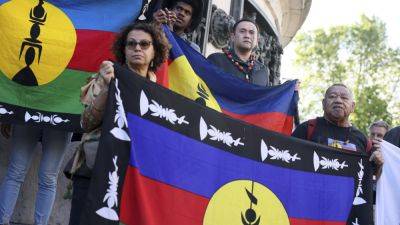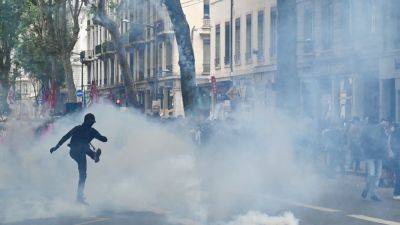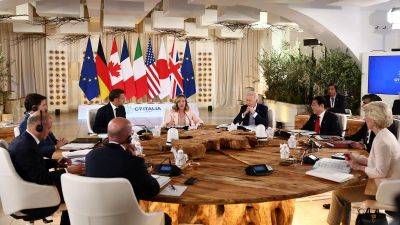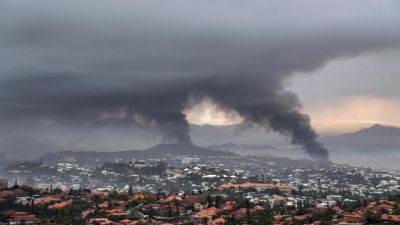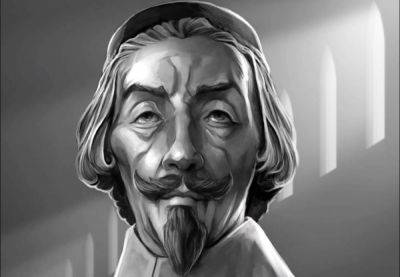In New Caledonia, ‘No Confidence’ With France After Violent Protests
The police station in Hienghene, a remote town in the Pacific island of New Caledonia, has been barricaded in for nearly three weeks. A few dozen protesters have blocked off the station’s access road and take turns keeping watch from the outside. Their cause is evident in the words written in chalk on the road: the names of three prominent French politicians, including the president, paired with the word “Assassins.”
The standoff is one example of the uneasy stalemate existing now in New Caledonia, where protests against more than 170 years of French rule turned violent last month and drove the territory to the brink of civil war. Seven people died, many more were injured, and businesses suffered losses worth hundreds of millions of dollars.
France quelled the worst of the violence by rushing thousands of armed police to the semiautonomous territory. President Emmanuel Macron even made a surprise visit. Mr. Macron ordered a dayslong state of emergency, banned the use of TikTok, and shut the territory’s main airport. Those restrictions have since been lifted, and commercial flights are slowly resuming from a smaller airstrip near the capital, Noumea, though the territory’s main airport remains closed.
The authorities continue to enforce a nightly curfew and a ban on alcohol sales, while Indigenous Kanak protesters maintain barricades on Noumea’s outskirts and in remote towns like Hienghene.
“We closed their door and keep them there and make them see what it’s like when a Kanak boy is kept in their jail in Noumea,” Jonas Tein, a protester in Hienghene, said about the town’s police station, which appears to have been resupplied through regular visits by police helicopters. “We try to stay calm,” he said, but the crackdown


